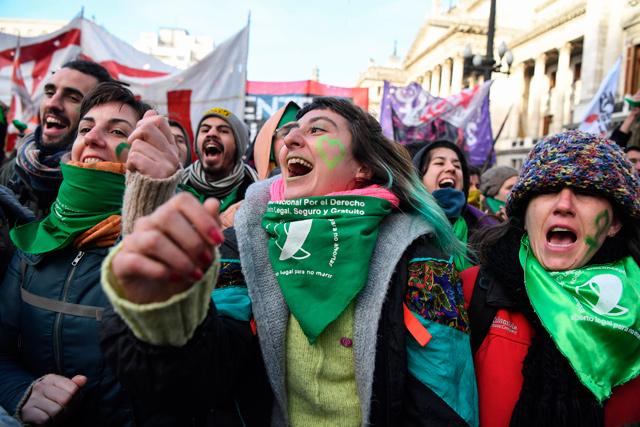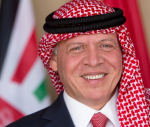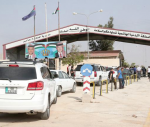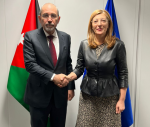You are here
Obama honours victims of Argentina's 'Dirty War'; faults US on human rights
By Reuters - Mar 24,2016 - Last updated at Mar 24,2016
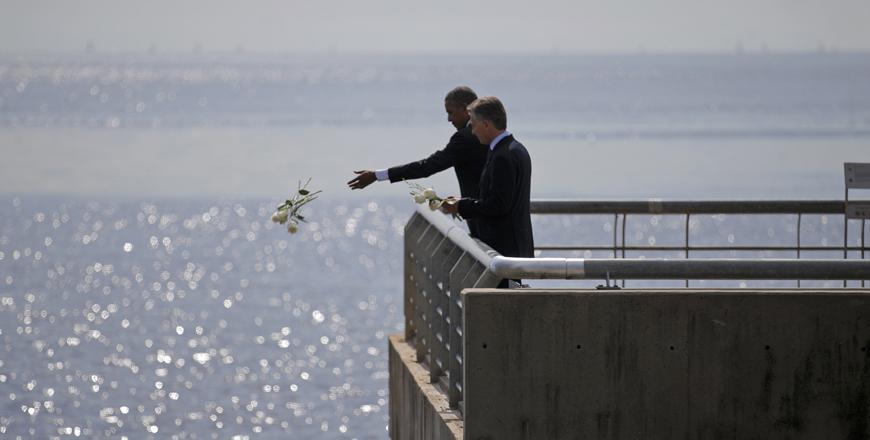
US President Barack Obama throws flowers in the River Plate while visiting with Argentina’s President Mauricio Macri (right) the Parque de la Memoria (Remembrance Park) where they honoured victims of Argentina’s Dirty War on the 40th anniversary of the 1976 coup that initiated that period of military rule, on Thursday (Reuters photo)
BUENOS AIRES — President Barack Obama said the United States was too slow to condemn human rights atrocities during Argentina's 1976-1983 dictatorship as he honoured victims of the "Dirty War" on Thursday, but he stopped short of apologising for Washington's early support for the military junta.
Obama's state visit to Argentina coincided with the 40th anniversary of the coup that began a seven-year crackdown on Marxist rebels, labour unions and leftist opponents, during which security forces killed 30,000 people.
"There has been controversy about the policies of the United States early in those dark days," Obama said while visiting a memorial park in Buenos Aires dedicated to victims of the dictatorship.
"Democracies have to have the courage to acknowledge when we don't live up to the ideals that we stand for. And we've been slow to speak out for human rights and that was the case here," he said.
Obama's trip, winding up later on Thursday, is part of a wider effort to deepen ties and bolster US influence with Latin America after years of frosty relations with left-leaning governments in the region.
With South America's leftist block now in disarray amid graft scandals and economic recession, Argentina's new centre-right leader, Mauricio Macri, offers Obama a new ally in one of the Americas' biggest economies.
Obama travelled to Argentina from Cuba, where he became the first sitting US president to visit in 88 years and opened a new chapter in engagement with the Communist-ruled island after decades of hostilities.
That policy shift has boosted Washington's standing in a region long wary of being treated as the US "backyard", although US foreign policy under Obama has still been dominated by the Middle East.
Death flights
At the memorial on the banks of the La Plata River, Obama and Macri walked along a stark wall that is known as the Monument to the Victims of State Terrorism and is inscribed with 20,000 names.
In bright sunshine, they walked down to a pier that overlooks the river, dropping white roses into the water to commemorate the dead. Obama bowed his head and stood with Macri in silence.
Survivors of the crackdown say one of the military rulers' tactics was so-called "death flights", where political opponents were tossed into aircraft, stripped and then thrown alive into the river and the Atlantic Ocean to drown.
Washington's early support for the military rulers reflected Cold War thinking, which sometimes put the United States on the side of brutal right-wing governments in Latin America. In a gesture toward Argentines still angry over that legacy, Obama has promised to declassify US military and intelligence records related to the dictatorship-era.
But the US leader was criticised by some rights activists. One group of victims' relatives said the timing of his visit was a provocation.
"We will not allow the power that orchestrated dictatorships in Latin America and oppresses people across the world to cleanse itself and use the memory of our 30,000 murdered compatriots to strengthen its imperialist agenda," the Buenos Aires-based Centre for Human Rights Advocates said in a statement.
Some Argentines welcomed Obama's gestures. "Obama is not going to say outright 'forgive us', but he's saying it through his actions," said Daniel Slutzky, a 75-year-old college professor.
Obama said on Wednesday it was "gratifying to see Argentina champion our shared commitment to human rights", Yet Macri's opponents balk at the suggestion the socially conservative leader is a rights defender.
"It takes courage for a society to address uncomfortable truths about the darker parts of its past. Confronting crimes committed by your own leaders, by your own people — that can be divisive and frustrating, but it is essential to moving forward," Obama said.
Speaking after Obama, Macri said: "We have to reaffirm our commitment to the defense of democracy and human rights. Every day, somewhere in the world they are jeopardised."
Obama's visit to Argentina is a show of support for Macri's sharp turn away from the nationalist policies of his predecessor, Cristina Fernandez, who frequently railed against the United States and Wall Street. Obama praised Macri on Wednesday for his rapid economic reforms.
During his trip to Cuba, the US president challenged President Raul Castro on human rights and political freedoms even as the two men sought to move on from more than half a century of animosity that began soon after Cuba's 1959 revolution.
Obama has been travelling with his family and later on Thursday they were to switch briefly into vacation mode, travelling to the lakeside town of Bariloche in Patagonia for the afternoon before returning to Washington.
Related Articles
BUENOS AIRES — Business-friendly conservative Mauricio Macri was sworn in as Argentina's new president Thursday, turning the page on 12 year
BUENOS AIRES — Conservative challenger Mauricio Macri turned Argentine politics on its head on Sunday, kicking the ruling Peronist movement
BUENOS AIRES — Lawmakers in Pope Francis's native Argentina cast a historic vote on Thursday to legalise abortion during the first 14 weeks



